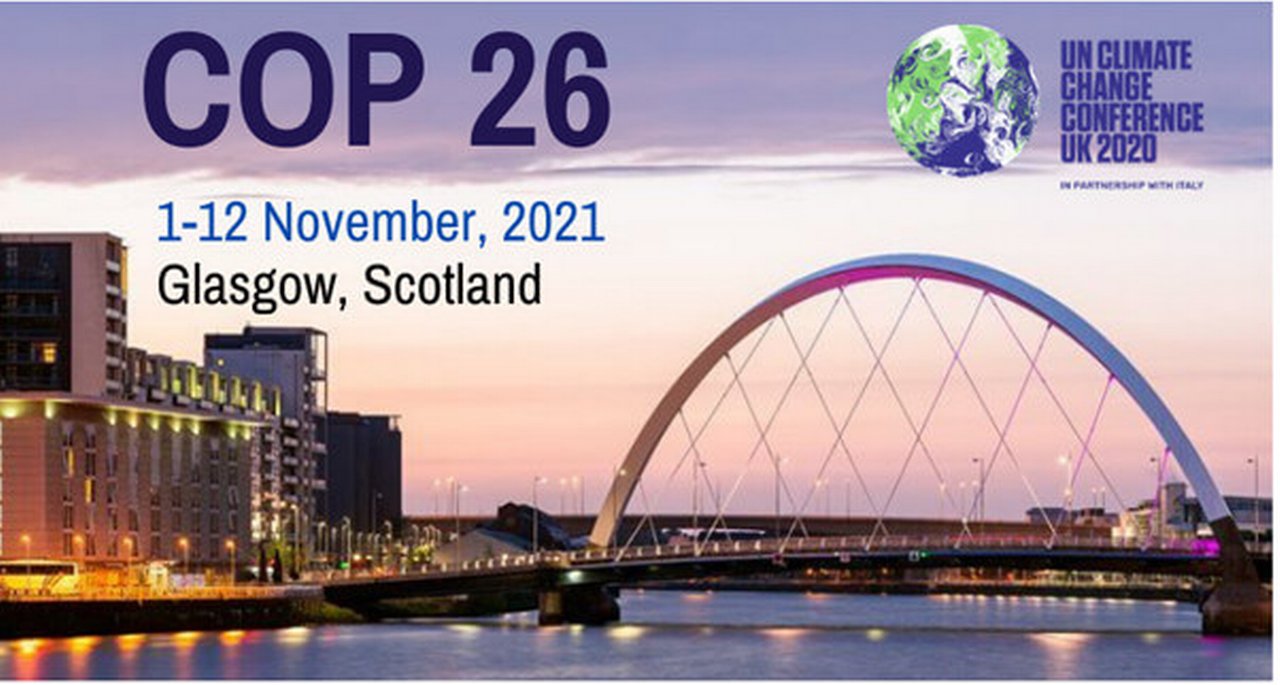1 July 2021
How should banks support corporate clients with their environmental, social and governance issues? Should they be involved in setting the client’s targets? These and many other issues were addressed in a keynote session at the 2021 ACT virtual conference
MINUTES min read

Virtual conferences might lack the atmosphere of a live event, but they can attract large numbers. The UK Association of Corporate Treasurers’ (ACT) annual event, held online over four days this year, saw around 2,000 delegates representing 60 countries register to hear speakers who included the Bank of England’s Governor Andrew Bailey.
Among several sessions sponsored by Deutsche Bank, a highlight was a discussion on how banks can enhance the role they play in supporting corporate clients with their environmental, social and governance (ESG) issues. Gerald Podobnik, Chief Financial Officer, Corporate Bank, Deutsche Bank was joined by Arthur Krebbers, Head of Sustainable Finance, Corporates at NatWest and Robert King, Head of Sustainable Finance for HSBC.
Moderator was Jessica Fries, Executive Chair of The Prince of Wales’s Accounting for Sustainability Project, also known as A4S, who noted that the willingness of banks and clients to work cooperatively had enabled corporate treasury teams to embed ESG into their activities and set ambitious targets.
King reported that sustainability has become a part of core strategy and target setting for a growing number of clients in the past year, from multinationals to SMEs. Three in four clients are employing sustainability metrics to measure their performance and sustainability-linked loans have grown hugely in number over recent years.
According to Krebbers several trends are evident, including a move beyond the traditional bank-corporate relationship as both sides share their ESG best practice. Conversations increasingly focus on holistically embedding ESG into an organisation, rather than on individual projects or products. And by identifying specific targets that are most relevant to an individual client, both sides avoid the “rabbit hole” that discussions on ESG can too easily become.
Podobnik admitted that his own focus was a little different; as CFO it was centred on helping Deutsche Bank embed ESG within its own operations. In addition to this role he co-chairs the Bank’s sustainability council that decides on strategy for the business and is also a member of the German government’s sustainability committee.
As CFO, the three main elements of sustainability are target setting, performance management and reporting. Podobnik added that ESG has moved on from mere product development to become a conversation linked to the whole economy. It addresses questions such as how the company clearly connects with the outside world through clear reporting and by adopting a holistic strategy.
Target setting

Are specific products, such as green bonds, and more advantageous terms helpful in supporting corporate clients as they move forward, asked Fries?
Krebbers thought that despite the attention given to sustainability-linked special products, other areas such as improving the standards of reporting are generally regarded as of greater importance than green bonds and similar offerings.
The past 24 months had witnessed much innovation across the banking and capital markets product range, including use of proceeds statements and also sustainability technology linked to meeting specific targets. Both are still in the early stages of development and challenges remain around the setting of the more ambitious sustainability targets.
King suggested that corporates – and not their banks – should set their own targets, firmly establish them and have a sustainability structure in place before they approach the market. Target setting has, fortunately, is becoming easier assisted by greater consistency and benchmarking.
Use of proceeds is a particularly effective tool for the CFO and treasurer when integrating sustainability and making it part of corporate core strategy, said Podobnik. As involves specifying what is sustainable and what isn’t, this improves the standard of reporting.
Two years ago, Deutsche Bank had changed the way it looked at sustainability when it set itself specific targets for 2025, he added. While it wasn’t one of the first banks to take action, it had been important to “get its own house in order” first before advising clients, which had enabled the original 2025 target to be brought forward to 2023.
Podobnik’s advice to corporate treasurers was therefore to take their time and determine what it was that their company wished to achieve before building those goals into their performance management.
Missing guidelines
Fries moved the conversation on to the push for disclosure regimes, noting that there has been some convergence to global standards. However, we haven’t yet arrived at that point and there are still difficult disclosure regimes and regulatory frameworks for companies to navigate.
Podobnik agreed that standardisation is the ultimate goal. As capital markets work off standardised quantitative reporting, banks need to determine what KPIs they adopt and how to measure them. In the run-up to a global standard there is still much work to be done, such the green asset ratio disclosure that will be introduced from 2022.
Yet there is still a lack of clear guidelines, such as specific KPI guidelines and how data sourcing could be justified, explained and audited. Banks need to know which data procurement processes are acceptable. King agreed that standardisation was key and required specific KPIs applicable to each sector and benchmarks in areas such as carbon emissions – although the Loan Market Association’s (LMA) guidance has been helpful in providing clarity.1
Krebbers noted that different disclosure requirements are emerging as a global minimum level develops at the same time as voluntary disclosure standards. Investors are not wedded to any single voluntary disclosure standard; a stakeholder survey asks which elements of disclosure are the most important to them and they have the option to add to it a second opinion or a benchmark.
A key topic in 2021 is net zero targets and climate change challenges, added Fries. How were the banks helping high impact industries in their transition to net zero?
For King, relationship management was key and HSBC had invested in training so that the bank could have “the right conversation” with the client. Nonetheless the transition will involve a huge amount of financing and the bank is also looking at digital tools to help smaller corporate clients, as well as providing thought leadership via a Guide to Net Zero developed in partnership with Carbon Intelligence.
Krebbers said that NatWest is a sponsor of the November 2021 UN Climate Change Conference (COP26) in Glasgow (above), an event that will need to “offer a broad church so that major parts of the economy can make the transition”. Setting net zero targets of 2040 or 2050 is just the first part of the journey, which also needs to detail what the implementation plan is, what investments are needed, and to clearly set out the governance and KPIs applicable.
How much ambition?
“ESG has moved on from simply product development to become a holistic conversation linked to the whole economy”
Among questions from the audience, each speaker from the three banks was asked whether it was better to set ambitious sustainability targets or settle for ones that are more conservative and also more likely to be achieved?
Whether to be ambitious or to play safe was a big question, Podobnik admitted, but given the scale of the global challenge, he opted for ambition. And corporates aiming to transition to net zero had only two options – being ambitious or failing. However, targets still had to be achievable and guaranteeing failure by making them completely unrealistic could actually be harmful.
Asked how ESG could be brought more directly into cash management, green bonds and similar products were again referenced and Krebbers said that there was a growing appetite for ESG-influenced money market funds and also in counterparty choice surveys.
Asked by Fries how corporate customers could put pressure on the banks to support net zero, Podobnik suggested that the power lies with them in the various target-setting initiatives. To be a credible sustainable finance provider the bank must become a credible partner. The client has the power to motivate banks, which must fight to get their share of wallet.
Asked for their closing thoughts, King stressed that banks are fully focused on the ESG issue. The regulator is asking the sector to look for more disclosure so its members are fully engaged in helping the transition. Podobnik offered two points for CFOs and corporate treasurers; firstly performance management is essential in keeping the company on the right track; secondly, ESG is a great new identity project for their teams in being involved in something so big – so they should be sure to raise their voice.
Krebbers agreed that treasury should take control and take the sustainability message to investors. Many treasury topics are static, but ESG means constantly adjusting both your priorities and your policies.
“So the message is to drive the internal conversation,” concluded Fries. “Challenge your finance providers. Set ambitious targets. And look to accounting for sustainability guidance.”
The ACT Annual Conference and International Treasury Week 2021: Accelerating Strategic Change took place online between 14 and 17 June 2021
Watch again a selection of videos from the ACT conference here:
- Enhancing the role of banks in supporting their corporate clients with ESG issues, featuring Deutsche Bank’s Gerald Podobnik
- Treasury transformation - ecommerce models, featuring BAT’s Mila Harger and Deutsche Bank’s Marion Laboure and Kilian Thalhammer
- Corporate case study: Roche’s intraday MT940 statements to achieve intraday transaction visibility, featuring Roche’s Stefan Windisch
- Best practice in M&A-driven risk management, featuring Deutsche Bank’s Joshua O’Mara
- Making sense of payments, featuring Deutsche Bank’s Ole Matthiessen
Go to Corporate Bank EXPLORE MORE
Find out more about products and services
Go to Corporate Bank Go to Corporate BankStay up-to-date with
Sign-up flow newsbites
Choose your preferred banking topics and we will send you updated emails based on your selection
Sign-up Sign-upSubscribe Subscribe to our magazine
flow magazine is published annually and can be read online and delivered to your door in print
You might be interested in
Sustainable finance, Regulation
Journey to green in ESG transformation Journey to green in ESG transformation
As capital pours into ESG investing, how are regulatory frameworks developing to support this growth? flow’s Clarissa Dann focuses on key points from dbSustainability Research analysis
SUSTAINABLE FINANCE
Building ESG investor frameworks Building ESG investor frameworks
As the pursuit of alignment with ESG considerations is increasingly shaping investor fund management strategies, flow talks to Deutsche Bank’s Global Head of ESG for Company Research Debbie Jones on what this means for market sector analysis and how regulation is shifting capital towards more sustainable investment objectives
MACRO AND MARKETS
ESG investing: roots to return ESG investing: roots to return
Covid-19 has changed the way investors view ESG, focusing more on performance than altruistic merit. flow’s Janet Du Chenne analyses Deutsche Bank research on what investors look for and the trends that are shaping the tools for predicting return




